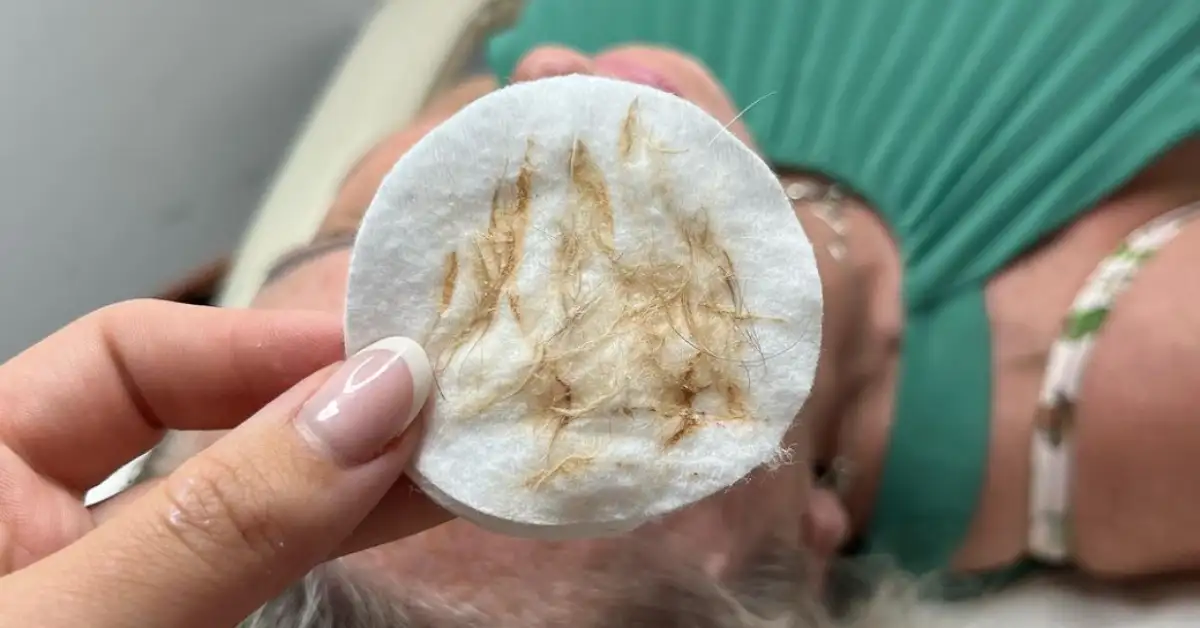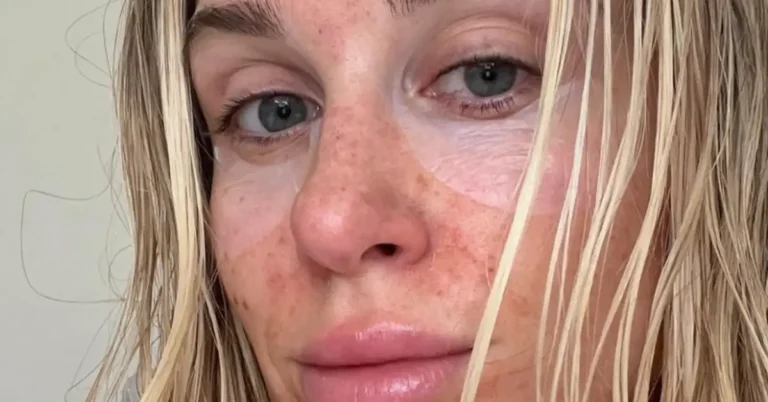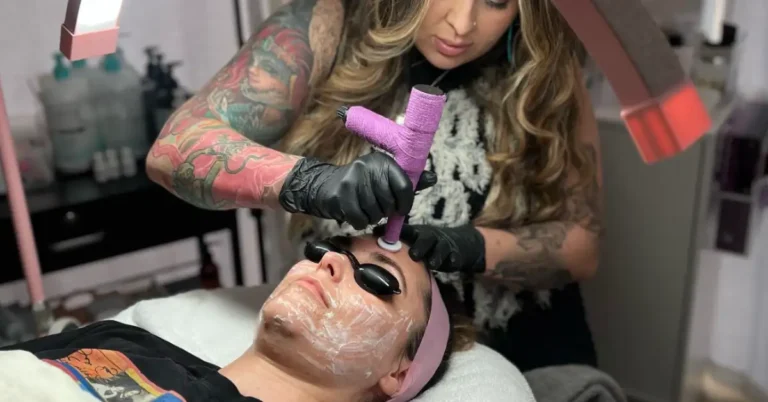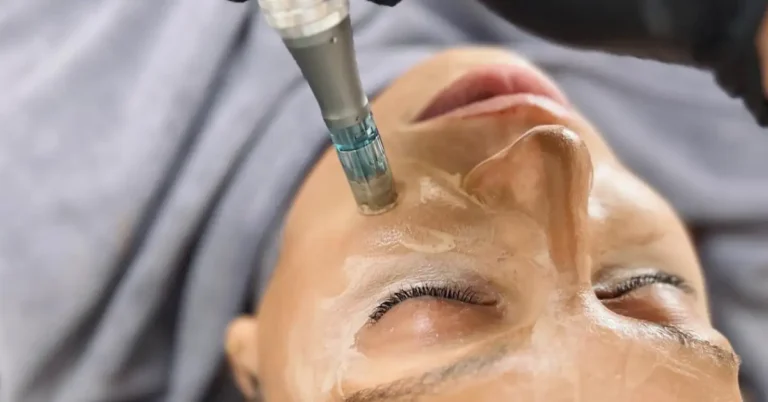Are you feeling exhausted from the continuous struggle with acne and looking for ways to achieve healthier, more glowing skin? I have personally experienced the difficulties that come with dealing with skin imperfections. Acne can have a profound impact on our confidence and mental health. When I came across dermaplaning, a method claimed to improve skin texture by removing dead skin cells and fine facial hair, I was hopeful but cautious.
The allure of flawless skin was undeniable, but rumors of dermaplaning causing acne gave me pause. Acne’s relentless presence feels like a never-ending battle. Stubborn breakouts and blemishes undermine our self-esteem. The promise of dermaplaning was tantalizing, but the fear of potential acne held me back.
Fueled by the desire to uncover the reality behind dermaplaning, I embarked on a journey to discover if it could indeed trigger acne. In this article, I’ll share my findings and offer insights into dermaplaning’s effects on acne-prone skin.
Table of Contents
Does Dermaplaning Cause Acne?
After scouring the internet and talking to dermatologists, I discovered that the answer to the question “Does dermaplaning cause acne?” is not a simple yes or no. While dermaplaning itself does not directly cause acne, it can potentially lead to breakouts if not done correctly.
For example, if the scalpel is not properly sanitized or if too much pressure is applied during the procedure, it can create tiny cuts in the skin that can become infected and result in pimples. Additionally, if the skin is not properly cared for after dermaplaning, it can become dry and irritated, which can also lead to breakouts.
However, it’s important to note that these risks are relatively low if you go to a licensed and experienced professional for your dermaplaning treatment. Furthermore, many people who have undergone dermaplaning have reported that it actually improved their acne by removing dead skin cells and allowing their skincare products to penetrate deeper into the skin.
Ultimately, whether or not dermaplaning is right for you depends on your individual skin type and concerns, so it’s important to do your research and consult with a dermatologist before making any decisions.
Understanding Dermaplaning
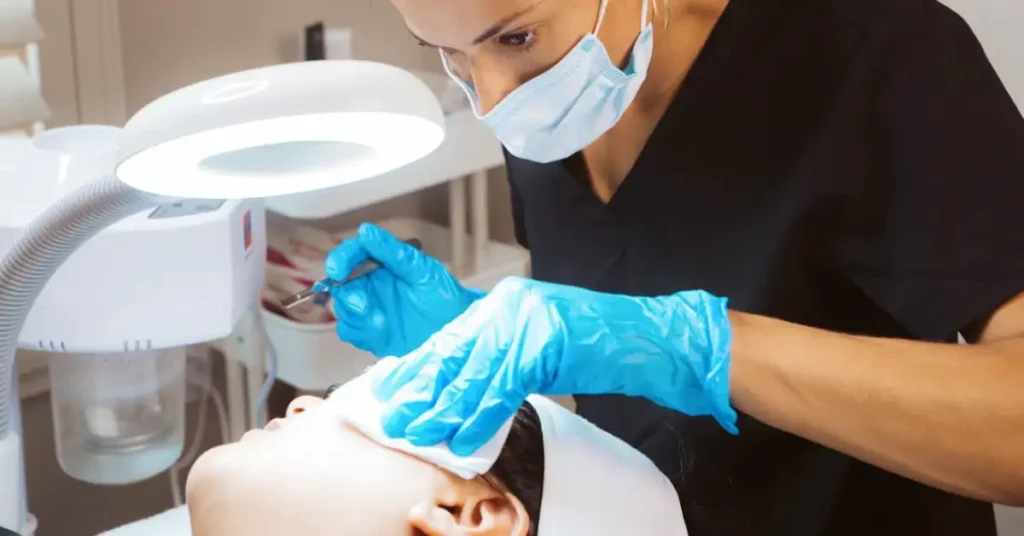
As someone who has struggled with acne for years, I was hesitant to try dermaplaning. I had heard mixed reviews about the treatment, with some people claiming that it helped clear up their skin and others saying that it caused them to break out. So, I decided to do some research and try it out for myself.
Dermaplaning is a cosmetic procedure that involves using a scalpel-like tool to remove dead skin cells and peach fuzz from the face. The treatment is said to leave the skin looking smoother and brighter, and can also help reduce the appearance of fine lines and acne scars.
While dermaplaning is generally considered safe, there is some concern that it could cause acne breakouts. This is because the treatment involves removing the top layer of skin, which can leave the skin more vulnerable to bacteria and other irritants.
However, in my personal experience, I did not experience any breakouts after my dermaplaning treatment. In fact, my skin looked and felt smoother than it had in years.
If you are considering dermaplaning, there are a few things you can do to minimize the risk of acne breakouts. First, make sure that you go to a reputable and experienced esthetician who uses clean and properly sterilized tools. Additionally, be sure to keep your skin clean and moisturized after the treatment to prevent any irritation or dryness.
Pro Tip: If you do experience a breakout after dermaplaning, try using a gentle cleanser and moisturizer to soothe your skin. Avoid using any harsh or abrasive products, as these can further irritate the skin.
Does Dermaplaning Cause Acne
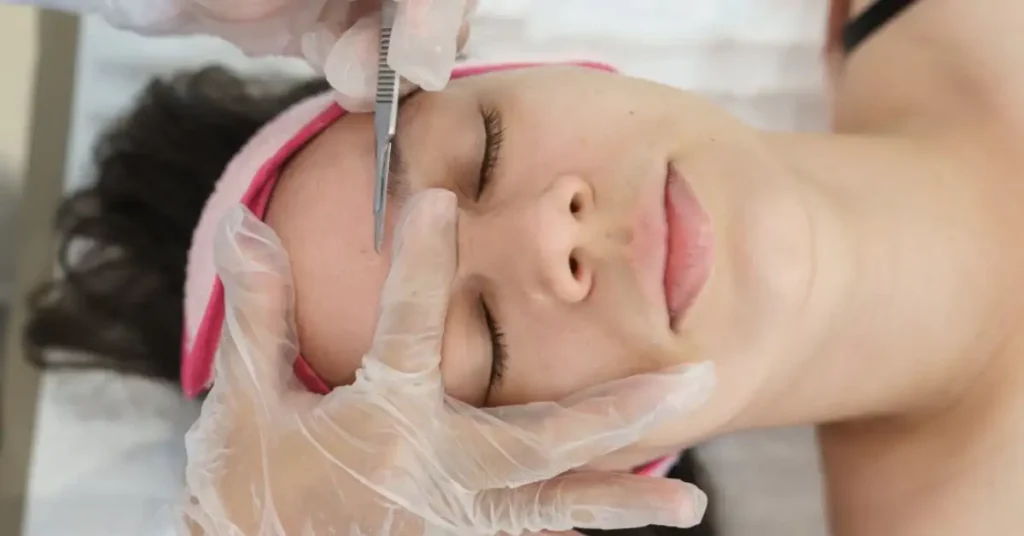
When I first heard about dermaplaning, I was skeptical but curious. Could this be the solution I had been searching for? However, before trying anything new, it’s important to do your research and understand the potential risks.
So, does dermaplaning cause acne? The answer is not a simple yes or no. While dermaplaning itself does not cause acne, it can exacerbate existing acne or lead to new breakouts if not done correctly.
The process of dermaplaning involves using a scalpel to remove dead skin cells and vellus hair (peach fuzz) from the face. If the skin is already inflamed or irritated from active acne, the process of dermaplaning can spread bacteria and cause further breakouts.
Remember: If you do decide to undergo dermaplaning, make sure to choose a reputable and experienced esthetician. It’s also important to follow post-treatment instructions carefully to avoid any irritation or inflammation.
That being said, dermaplaning can be a beneficial treatment for those with mild to moderate acne scarring or hyperpigmentation. By removing the top layer of dead skin cells, dermaplaning can help to improve the texture and appearance of the skin. However, it’s important to consult with a licensed esthetician or dermatologist before undergoing the treatment.
In my personal experience, dermaplaning did not cause any new breakouts but did temporarily exacerbate existing acne. However, I found that incorporating a gentle skincare routine and avoiding harsh products helped to minimize any negative side effects.
Factors That May Lead to Acne After Dermaplaning
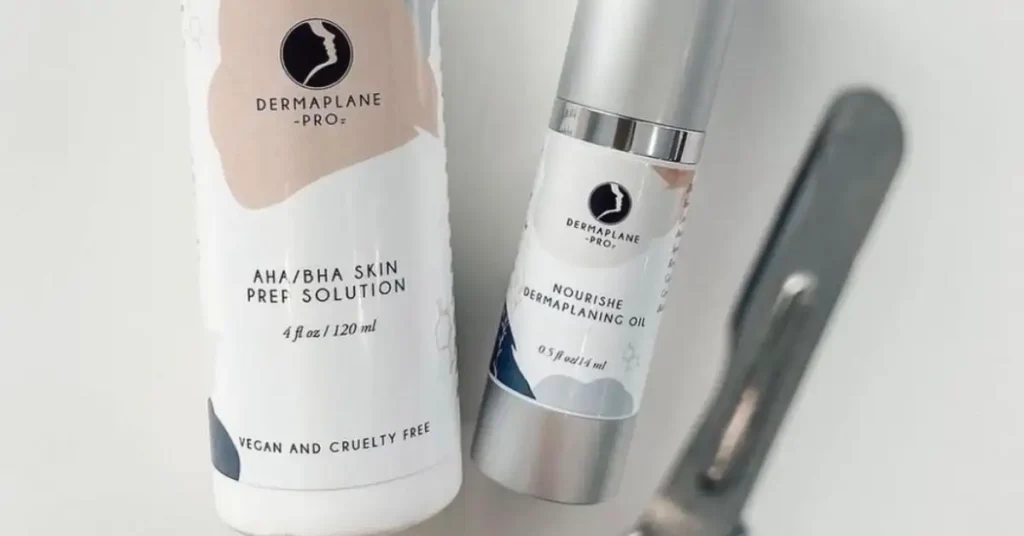
As someone who has undergone dermaplaning in the past, I can attest to the fact that it is a great way to achieve smooth, glowing skin. However, like any skin treatment, there are potential side effects to consider. One of the most common concerns is whether dermaplaning causes acne. In this section, I will explore some of the factors that may contribute to acne breakouts after dermaplaning.
First and foremost, it’s important to note that not everyone will experience acne after dermaplaning. However, it is a possibility, and there are a few reasons why this might happen. One factor is that the procedure can cause some irritation to the skin.
This irritation can lead to inflammation, which can then trigger acne breakouts. Additionally, if the procedure is not done correctly, it can cause small cuts or nicks in the skin. These cuts can become infected, leading to acne.
Another factor to consider is the type of products that are used after dermaplaning. It’s important to avoid using any harsh or irritating products, as this can exacerbate any existing inflammation or irritation. Instead, opt for gentle, non-comedogenic products that won’t clog pores.
Pro Tip: If you’re concerned about acne after dermaplaning, it’s a good idea to schedule your appointment at a time when you don’t have any major events or important occasions coming up. This will give your skin time to heal and recover without the added stress of needing to look your best.
Other Factors That Can Cause Acne
While dermaplaning may not necessarily cause acne, there are other factors that can contribute to the development of acne. Here are some of them:
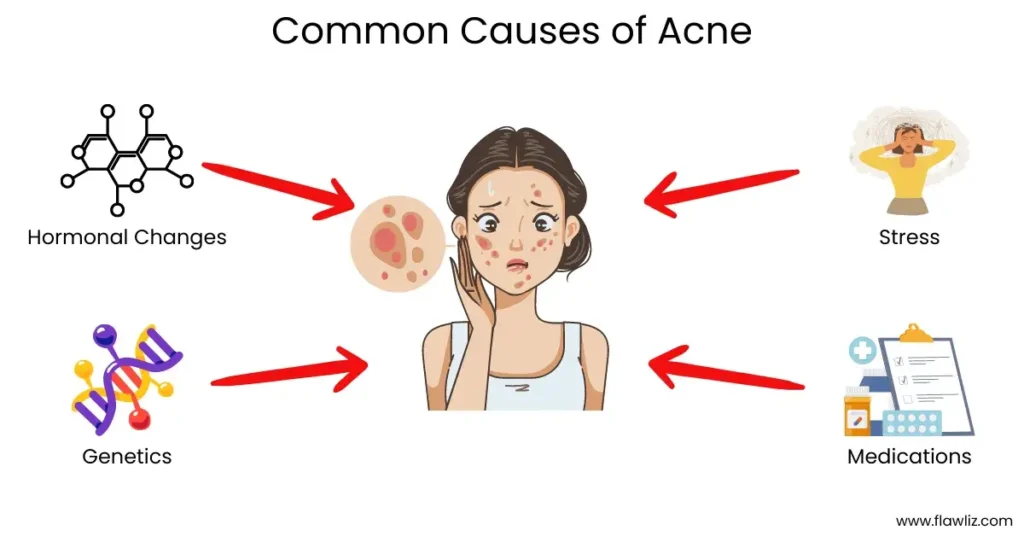
- Hormonal Changes: Hormonal changes can lead to an increase in oil production, which can clog pores and cause acne. This is why acne is common during puberty and menstruation.
- Genetics: Acne can be hereditary. If your parents had acne, you may be more likely to develop it as well.
- Stress: Can cause hormonal changes that can lead to acne. In addition, stress can cause you to touch your face more often, which can transfer bacteria and oil to your skin.
- Diet: While there is no definitive evidence that certain foods cause acne, some studies suggest that a diet high in sugar and refined carbohydrates may contribute to acne.
My Advice: To help prevent acne, make sure to wash your face twice a day with a gentle cleanser. Avoid touching your face with your hands, and try to keep your hair away from your face. Additionally, make sure to get enough sleep and manage your stress levels.
I have noticed that when I am stressed or not getting enough sleep, I tend to break out more often. Additionally, when I eat a lot of sugary or greasy foods, I notice that my skin becomes more oily and prone to acne.
How to Prevent Acne After Dermaplaning
As someone who has had dermaplaning done multiple times, I can attest that it is a fantastic way to exfoliate and rejuvenate your skin. However, there is always a chance that you may experience breakouts after the procedure. So, how can you prevent acne after dermaplaning?
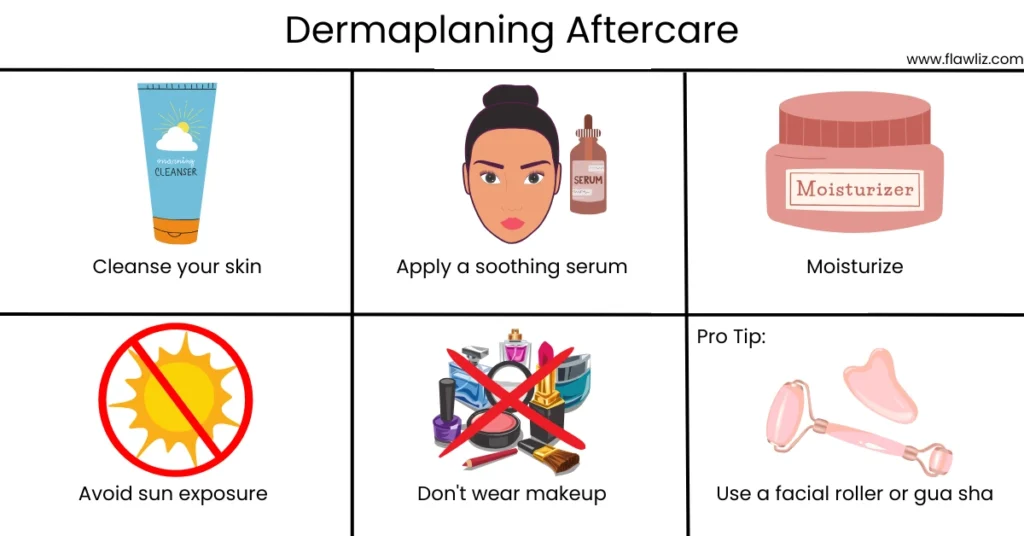
Firstly, make sure to choose a reputable and experienced aesthetician or dermatologist to perform the procedure. This will ensure that the blade used is clean and sterile, reducing the risk of spreading bacteria and causing breakouts.
Additionally, if you have acne-prone skin, it may be a good idea to avoid dermaplaning altogether or discuss alternative options with your skincare professional.
Another way to prevent acne after dermaplaning is to avoid touching your face for at least 24 hours post-treatment. Your skin will be more sensitive and prone to irritation, and touching your face can introduce bacteria and cause breakouts.
Pro Tip: After dermaplaning, use a gentle toner to help balance your skin’s pH levels and reduce inflammation. Look for toners with ingredients like witch hazel or tea tree oil, which have natural antibacterial properties.
Pros and Cons of Dermaplaning
As someone who has had multiple dermaplaning treatments, I can attest to the benefits of this exfoliating technique. However, like any beauty treatment, there are both pros and cons to consider before deciding if dermaplaning is right for you.
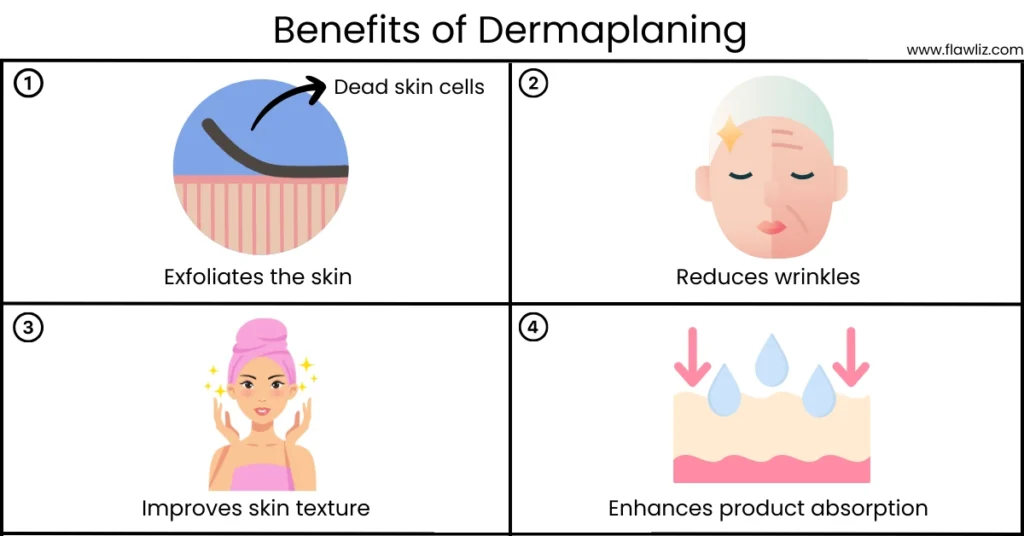
Pros
- Smooth, glowing skin: Dermaplaning removes dead skin cells and peach fuzz, leaving your skin feeling silky smooth, and radiant.
- Reduced appearance of fine lines and acne scars: By removing the top layer of dead skin, dermaplaning can help reduce the appearance of fine lines, wrinkles, and acne scars.
- Better product absorption: With dead skin cells and peach fuzz out of the way, your skincare products can penetrate deeper into your skin, making them more effective.
- Makeup goes on smoother: Without peach fuzz in the way, makeup goes on more smoothly and evenly.
- No downtime: Unlike other exfoliating treatments, dermaplaning has no downtime, so you can go about your day right after your treatment.
Cons
- Temporary results: Dermaplaning is not a permanent solution, and the results typically last for about three to four weeks.
- Risk of nicks and cuts: While rare, there is a risk of nicks and cuts during the dermaplaning process, which can lead to scarring or infection.
- Not suitable for all skin types: Dermaplaning may not be suitable for those with active acne or sensitive skin.
- Possibility of increased oil production: In some cases, dermaplaning can stimulate oil production, leading to breakouts.
Remember: To get the most out of your dermaplaning treatment, make sure to keep your skin hydrated and protected from the sun. And if you’re concerned about the possibility of increased oil production, try using a non-comedogenic moisturizer to keep your skin balanced.
Alternative Treatments to Dermaplaning
As someone who has struggled with acne, I understand the desire to try different treatments to achieve clear skin. However, dermaplaning may not be the best option for everyone. If you’re looking for alternative treatments to dermaplaning, here are a few options to consider:
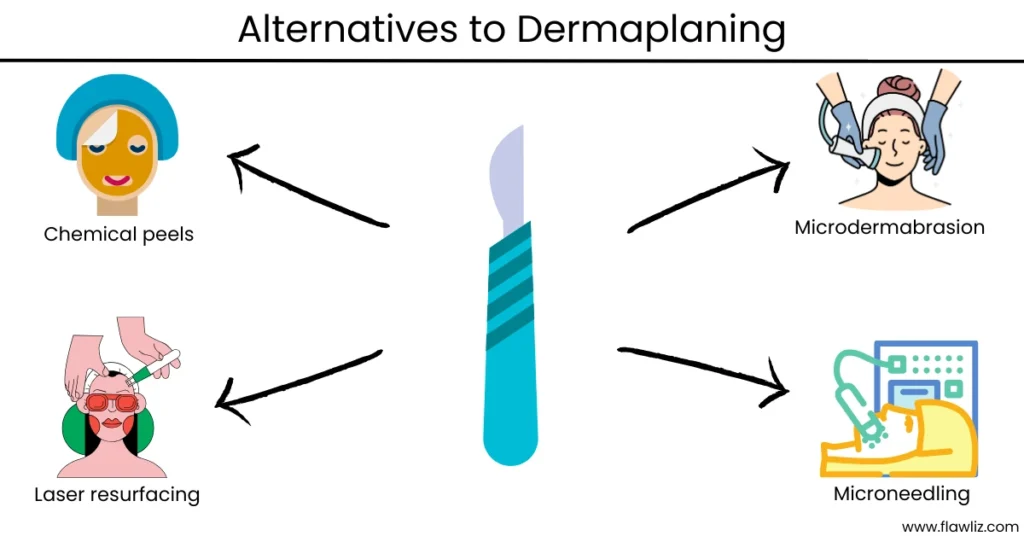
- Chemical peels: Chemical peels use a solution to remove dead skin cells and unclog pores. This treatment can be customized to your skin type and concerns and can be done in a dermatologist’s office or at home with a kit. However, it’s important to note that chemical peels can be harsh on the skin, so it’s crucial to follow the instructions carefully and avoid over-exfoliating.
- Microdermabrasion: Similar to dermaplaning, microdermabrasion exfoliates the skin to improve texture and tone. However, instead of using a blade, microdermabrasion uses a wand with a diamond tip to gently remove dead skin cells. This treatment can be done in a dermatologist’s office or with an at-home kit.
- LED light therapy: LED light therapy uses different wavelengths of light to target specific skin concerns, such as acne, wrinkles, and hyperpigmentation. This treatment is non-invasive and can be done in a dermatologist’s office or with an at-home device.
- Microneedling: Microneedling is a minimally invasive procedure that uses a device with tiny needles to create controlled micro-injuries in the skin. This process stimulates collagen and elastin production, leading to improved skin texture and reduced signs of aging. It can be performed in a dermatologist’s office or by a trained professional.
Personally, I’ve found that a combination of chemical peels and LED light therapy has helped improve my acne-prone skin. However, it’s important to consult with a dermatologist to determine the best treatment plan for your individual needs.
Does Dermaplaning Cause Acne: A Recap
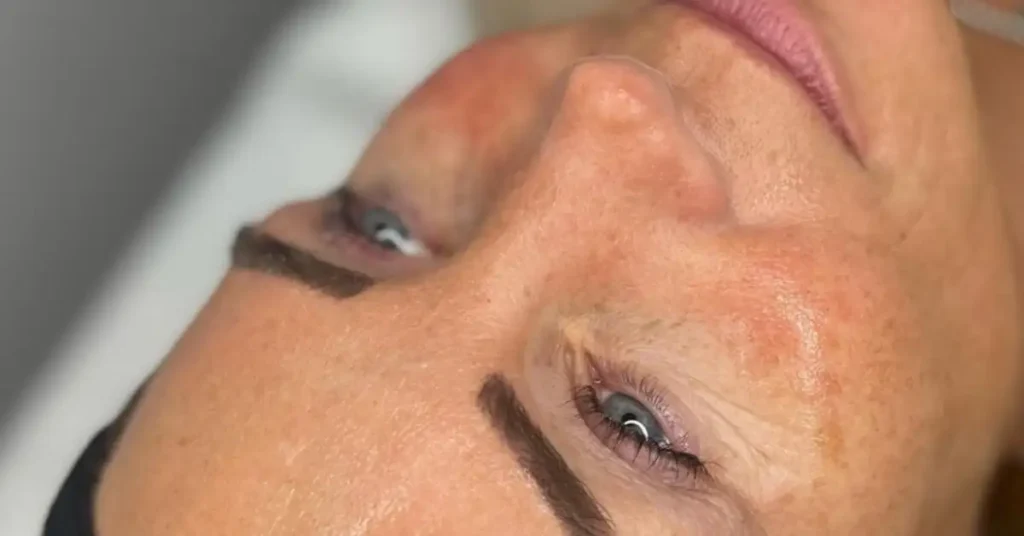
As someone who has struggled with acne for years, I know how important it is to be cautious about trying new skincare treatments. Dermaplaning is a popular exfoliating treatment that involves using a scalpel to remove dead skin cells and peach fuzz from the face. But does dermaplaning cause acne? After doing some research and trying the treatment myself, here’s what I’ve learned.
First of all, it’s important to note that dermaplaning can be beneficial for acne-prone skin. By removing dead skin cells and peach fuzz, the treatment can help to unclog pores and prevent breakouts. However, there are some potential risks involved.
One of the main concerns with dermaplaning is that it can spread bacteria and cause breakouts if the blade used is not properly sanitized. It’s important to choose a reputable esthetician who follows strict hygiene protocols and uses a new blade for each client.
Another potential risk is that dermaplaning can cause irritation and inflammation, which can lead to breakouts. This is more likely to occur if you have sensitive skin or if the treatment is done too aggressively.
To sum up the pros and cons of dermaplaning for acne-prone skin, I’ve created the following table:
| Pros ✅ | Cons ❌ |
|---|---|
| Removes dead skin cells and peach fuzz, unclogs pores | Can spread bacteria and cause breakouts if not done properly |
| Can improve the appearance of acne scars | Can cause irritation and inflammation |
| Can make it easier for skincare products to penetrate the skin | Not recommended for active acne or rosacea |
FAQ
Is it normal to break out after dermaplaning?
Breakouts following dermaplaning are quite common. Occasionally, skin reacts negatively, becoming extra sensitive and resulting in numerous small bumps. However, with proper aftercare, these breakouts usually diminish, leaving your skin smoother and clearer.
Is dermaplaning good or bad for acne?
Dermaplaning can be beneficial for acne-prone skin when performed by a professional. It helps remove dead skin cells, allowing skincare products to penetrate better. However, it should be avoided during active breakouts as it may exacerbate the condition. Always consult with a dermatologist for personalized advice.
Do dermatologists recommend dermaplaning?
Dermatologists often recommend dermaplaning for its exfoliation benefits. However, it may not be suitable for everyone, especially those with certain skin conditions. Consulting with a dermatologist before undergoing the procedure is advisable to ensure it’s appropriate for your skin type and concerns.
Is there a downside to dermaplaning?
Yes, there are potential downsides to dermaplaning. It may cause breakouts or irritation in some individuals, and it’s essential to ensure the procedure is done by a skilled professional to minimize risks. Additionally, it’s not suitable for certain skin conditions or those with active acne outbreaks.
Why is dermaplaning not recommended for active acne?
Dermaplaning is not recommended for active acne because it can potentially exacerbate the condition. The procedure involves using a scalpel to remove the top layer of skin, which may further irritate inflamed acne lesions and spread bacteria, leading to more breakouts.
If you liked this blog article about the question: Does Dermaplaning Cause Acne? don’t forget to leave us a comment down below to tell us about your experience.

